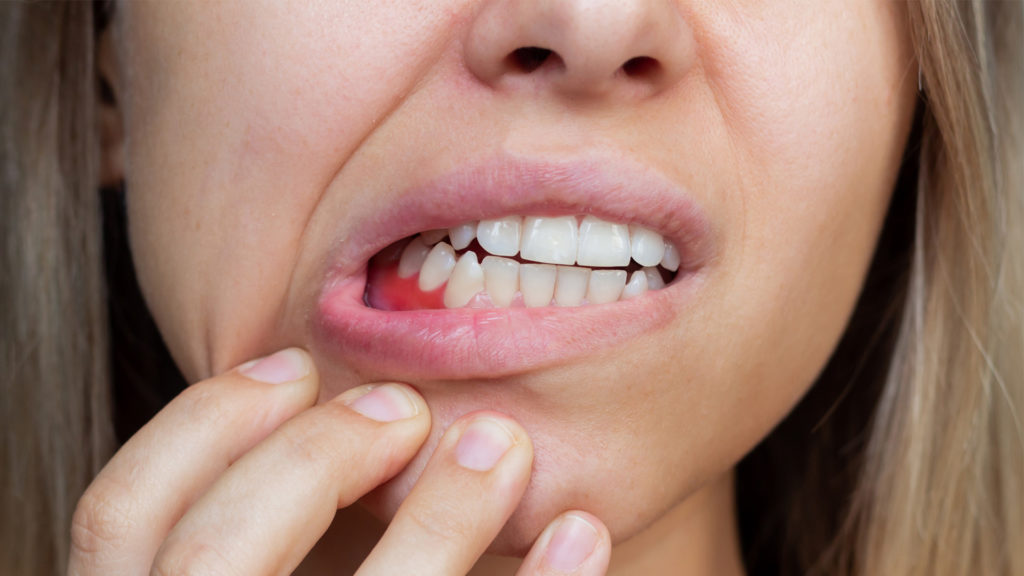Just as you take care of your outer look every day, it is also essential to take care of your teeth. Poor teeth brushing can lead to infection due to food particles stuck in your teeth, resulting in bacteria formation that gradually leads to bleeding of the gums, chewing problems, and pain in your teeth. Therefore, if you are facing such issues, it means you are suffering from periodontitis, and it is a severe dental problem for which early medication is of utmost importance.

Contents
The Causes Of Gum Disease (Periodontitis & Gingivitis)
The primary cause of gum disease is bacteria. It happens due to the formation of mucus that gradually develops inside your mouth. In due course, it leads to plaque formation that hardens the tooth. Therefore, you must indulge in regular brushing of your teeth and flossing. Smoking is also one of the causes that can cause periodontal disease.
The primary cause of periodontal is plaque. The following are the causes:
- Hormonal change
- Illness
- Bad habits like smoking
- Poor oral hygiene like not brushing your teeth properly
Symptoms Of Gum Disease
Following are some of the symptoms of gum diseases:
- Swollen gums
- Bad Breath
- Bleeding of gums
- Pain in the tooth
- Difficulty in chewing
- Sensitive teeth.
Also Read: Filling a Tooth Procedure
Early Stage of Gum Disease (Periodontitis)
Periodontitis disease is broken up into four stages:
1. Gingivitis:
The early stage of gum disease begins with the inflammation of the gums, and Gingivitis is an early-stage gum disease. The good thing is that it is the only stage of your dental problem that can get an early cure. You can control your gum disease by taking medication during the early stages. However, most of us ignore the symptoms primarily because we are unaware of them. There are usually no symptoms as you will not feel discomfort or pain in your tooth and gums. However, the early signs include bad breath, swelling of the gums, and bleeding while brushing your teeth. Hence, you must go for regular dental check-ups if experiencing early periodontal disease.
2. Early Periodontal Disease:
During the early periodontal disease, your gums start to pull away from your teeth, forming small pockets. These pockets gradually become a home for the bacteria to build up in and around your teeth and gums. The early symptoms are bad breath and gums bleeding while brushing your teeth, which means the infection is gradually spreading to the bone. If you do not take immediate dental care, the bones around your teeth will start to degenerate. During the early periodontal stage, the bacteria spread rapidly, causing infection in your mouth.
3. Moderate Periodontal Disease:
If you do not take immediate dental care, it can lead to the third stage of periodontal disease. During the third stage, you will experience the same symptoms but with a higher proportion. There will be excessive bleeding around your teeth and gums. Moreover, you will be experiencing heavy bacteria attacks as they will start infecting your teeth, gums, and bones. Since the mucus that forms on your tooth hardens, it is difficult to remove them by brushing. You must go for a dental cleaning for a total clean-up. Root scaling and planning are the best ways to get rid of the bacteria. It is a deep cleaning method that completely removes the bacteria from your mouth. If you ignore it, it can lead to excessive bleeding in and around your teeth and gums. You will also experience shifting of your teeth. Often due to the degeneration of the bones, your tooth loosens, resulting in a loss.
4. Advanced Periodontal Stage:
During the advanced stage of periodontal disease, the connective tissue that holds your tooth in position gradually starts to deteriorate. The gums and tissues responsible for keeping your tooth also begin to deteriorate. You will face various dental issues, including problems with chewing, toothache, and severe bad breath. Your gums will start to swell, resulting in the formation of pus. Gradually, you will be in real distress due to chronic toothache. The best option is to go for immediate surgery so that it stops the action of bacteria from further infecting your mouth. If you ignore the advanced periodontal stage, you may lose all your teeth gradually. It will also lead to other health diseases. You will also be unable to enjoy your social life due to extensive lousy breath. Your confidence level will drop, thus affecting your overall mental and physical health.
See Also: Reverse Gum Recession Naturally
Treatment of Periodontal Disease (Gum Disease)
If you are suffering from bleeding gum, it is time you see a periodontist as soon as possible. There are various treatments that you will undergo depending upon the stage of gum infection. Once you visit a dental clinic, the periodontist will first check your tooth and gums. Based on his observations, he will determine the best option.
Non-Surgical Treatment:
- Scaling
- Root planing
- Antibiotics
Following are the various types of cures that you have to undergo. The doctor will first prescribe some antibiotics if an infection is found in the gums. He may also use other medicines to treat the problem of gum recession. The options include:
- Topical Antibiotic Gel
- Antiseptic Chips
- Antimicrobial Mouthwash
- Enzyme Suppressants
Surgical Treatment:
- Flap surgery
- Tissue-stimulating proteins
- Guided tissue regeneration
- Soft tissue grafts
- Bone grafting
Surgery is the best option when you reach the advanced tooth and gum infection stage. It is because, without surgery, you will not be able to get back into your usual self, and you will be given two options: flap surgery and grafting.
Flap surgery is a deep tissue cleaning, and it is usually used when other treatments fail. The primary purpose of Flap surgery is to get rid of the bacteria and the tarter that builds up within the gums. It is an intensive surgery where the periodontist lifts the gums, cleans them, and then puts them back in place. After the surgery, you will sometimes find the teeth appear longer than before. It is because, after flap surgery, the gums fit more closely around them.
In grafting, the primary objective is to revive the gum tissues or the bones. During the surgery, the periodontist places either a synthetic particle or a piece of bone or tissue in the gums so that it helps the gums grow back. However, it is a lengthy process and cannot be successful until you undergo proper oral health care.
Also Read: Difference Between Canker Sores and Oral Cancer
What Does Gum Disease Look Like?
If you find blood in the sink after brushing your teeth, you must immediately check with your dental care doctor. The blood occurs due to an infection in the gums, and if you do not take care of them directly, you call for big trouble. So, when you have gum disease, some of the common symptoms are:
Red or Swollen Gums:
It is the first sign of gum disease if you find your gums swollen and red. It is the early stage of periodontitis, and if you do not take immediate action, your entire gum and teeth will become infected with bacteria.
Bad Breath:
If you have continuous bad breath, it is a gum infection problem. Your mouth provides a warm place for the bacteria to live and grow. For these reasons, you must regularly brush your teeth after dinner and in the morning. It would help if you did not allow the bacteria to settle on the food particles. If you do not take care, gradually, you will develop plaque.
Sensitive Teeth:
If you feel a twinge in your teeth after sipping something cold or warm, you develop an infection in your mouth. It is the receding gum stage where the sensitive part of your tooth starts showing signs of damage. It would be best if you took extra care of your tooth and gums during these times, or else you have to land yourself in surgery.
Hence, you need to undergo the first-line treatment of your gums to avoid further damage. Deep cleaning is unlike a regular cleaning that is done above the gum line, and deep cleaning is done under the gum line, where the dentist will use special instruments to clean your gums and teeth. One of the methods that your dentist will use is called scaling. It is a process where that tarter is scrapped from above and below the gum line. It is not possible with ordinary brushing of your teeth. Your dentist can also go for root planning to smooth out the rough surfaces of your teeth. It helps the gums to reattach to your tooth.
Also Read: Foods to Avoid With Receding Gums
FAQs
Q1. What is the Primary Cause of Gum Disease?
Ans: The primary cause of gum disease is plaque. It is a sticky film of bacteria that remains stuck to your teeth. Gradually the bacteria start infecting your gums and teeth.
Q2. What is the First Symptom of Gingivitis?
Ans: When you notice blood in the sink after brushing your teeth, you suffer from Gingivitis. It would be best if you took early action; else, it will lead to further complications.
Q3. When Does Bad Breath Occur?
Ans: If the plaque becomes tartar, its bacteria can cause bad breath as your tooth will start decaying. Plaque also causes cavities and decay leading to bad breath.
Conclusion
If you can control the first stage of Gingivitis, you can reverse it. If you can go for early treatment, you will save yourself from surgery. Moreover, you will also not suffer from excessive pain in your teeth and bleeding of the gums. Therefore, you should regularly go for an oral check-up to keep your teeth and gums in proper order. You must develop the habit of brushing your teeth regularly after your dinner and before going to bed.
Posts You May Like:


